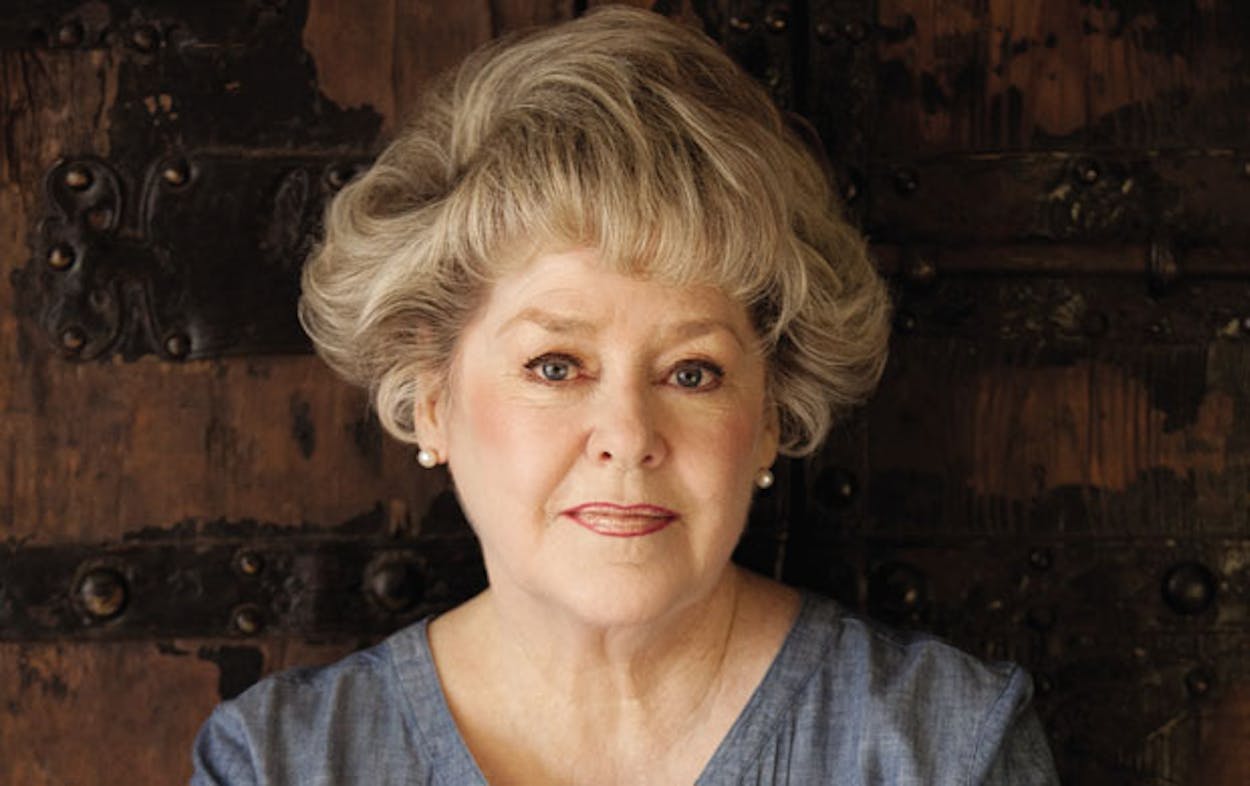To judge by her fiction writing, the retired schoolteacher turned bestselling writer Leila Meacham would seem to be personally acquainted with outsized heartbreak, betrayal and the cruelties one generation commits unto the next.
Her 2010 novel Roses follows the three founding families of a fictional Texas town over the course of nearly a century of backstabbing and secret-keeping. Her newest book, Tumbleweeds, published last week by Grand Central Publishing, features an orphaned teenager, a manslaughter that is covered up to look like autoerotic asphyxiation, and a child fathered by either a sterile professional football player or his Jesuit priest best friend.
To hear Meacham describe it, though, her own life is peaceful and decidedly un-melodramatic. She is 73, lives with her husband in San Antonio, where she writes five days a week, and does not much brood about the vicissitudes of commercial publishing. She did not expect Roses to be published, or to land on the New York Times hardcover best-seller list for eight weeks, and she said that she has now found a professional contentment that she would not have felt if she had achieved literary success sooner.
“If I had begun writing earlier, I might have felt the pressure to succeed,” Meacham said during a recent interview. “Having started late at this endeavor, I feel that what I’m doing now is important to me, but it is not my whole life.”
Beginning in the 1960s, Meacham taught English to high school students in a handful of cities in Texas. She published three romance novels in the mid-1980s with Walker and Company, but she mostly found the process burdensome.
“I didn’t like the isolation,” she said. “I didn’t like the discipline required. I didn’t like the deadlines. So I put away my pen. The romance novel was not my calling.”
She was a decade into her retirement, growing increasingly bored (“I thought I would choke if I ever attended another luncheon,” she said) when she returned to Roses, a manuscript that she had started in the 1980s.
When she completed the novel, one of Meacham’s friends made a call to a niece, who just happened to be married to David McCormick, a literary agent in New York. McCormick agreed to take on the book and later sold it to Grand Central, which published it in January 2010. Reviewers compared it to those door-stopper-sized, soap operatic novels by the likes of Belva Plain and Barbara Taylor Bradford that were popular in the late 1970s and 80s.
“Those kinds of books had gone out of style, and I thought we were being kind of retro in publishing it,” said Deb Futter, who acquired the novel for Grand Central.
Meacham worried that potential editors would be skittish about her age and “think I had one foot in the grave.” Ultimately, though, her age proved to be an effective marketing tool: her story was inspirational catnip to anyone who has a long-neglected manuscript buried deep in a desk drawer.
Tumbleweeds begins in a small west Texas town, between 1979 and 2008, and it revolves around two star high school football players who both fall for the same girl. Yet other than the contemporary setting, it’s very much of a piece with Roses, with twists piled atop twists, and well intentioned characters who nonetheless seem to make a wreck of things.
Lorraine Heath, a Texas-based novelist who specializes in historical romances, said that Meacham might be tapping into a larger cultural thirst for a slower, more sprawling way of life.
“I think that the decline of interest in the epic, romance/literary hybrid may be a result of our living in such a fast-paced, sound-bite driven society,” she wrote in an e-mail.
Heath added, “But like all things in publishing, readers’ tastes are cyclic, and I suspect that many do miss” those kinds of novels.
Meacham, who is presently working on a prequel to Roses, titled Somerset, said she has no particular affinity for melodrama. She read The Thorn Birds when it was published, but never did get through Gone with the Wind. Her characters are not based on friends or family members or actual events from her past.
So where does she get her material?
“People ask me if my characters are based on any of my experiences and I say, ‘no,’” she said. “If they were, how boring would that be?”
As for the criticisms that have been lobbed her way—“silly premise, ridiculous motivations,” wrote one especially vitriolic reader of Roses on Amazon.com, adding, “a very, very long Harlequin-type romance masquerading as real literature”—Meacham shrugs them off. Indeed, one of the benefits of finding success as a novelist late in life is that you have none of the pretentions of youth, and none of the hang-ups, either.
“I think life is a soap opera, so that term doesn’t bother me,” she said. “I will continue writing about characters that interest me, and interesting characters are those who find themselves in dramatic situations. Otherwise, why would you want to read about them?”
Christopher Kelly is the film critic for the Fort Worth Star-Telegram. A version of this article appears on the New York Times as part of its Texas Report.
- More About:
- Books






